Editor’s note
From Donald Trump’s assassination to Biden’s withdrawal to Harriss’s succession, one of the fiercest presidential elections in modern American history has come to a close. Phoenix net”Dialogue with the world” in-depth election front, launched a”Go behind the scenes of the U. S. election” special report, inviting local people to the U. S. in-depth interpretation of the election. This is the first in a series.
Does Harriss have enough leadership to lead? Can she deliver on her campaign promises? What really matters in a general election? Recently, Phoenix spoke to the world at US Dialogue, where Rob Vona, the New Hampshire Director of the US Environmental Constituency Alliance and former National Field Director of the US Campaign Reform Organisation, in-depth interpretation of the above issues.
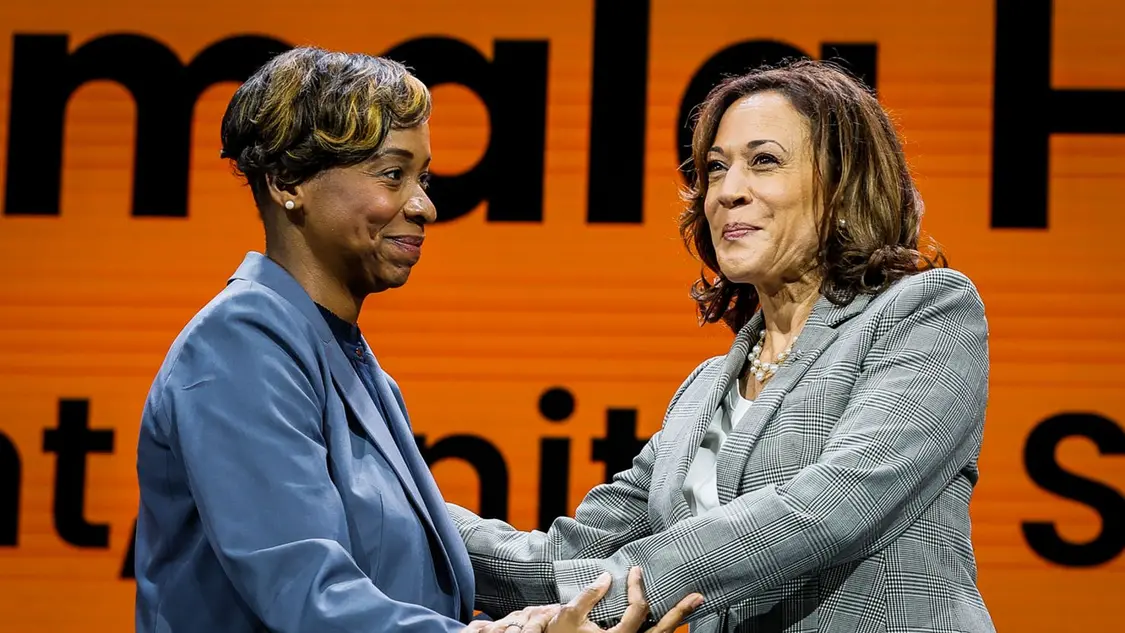
Minorities are abandoning Harriss? These changes have occurred in the political landscape of the United States
Dialogue, Hou Yichao, international editor-in-chief, Phoenix. Com
Dialogue with the world: the first question is about leadership. We know you’ve met Harriss recently, and we know she’s been under some criticism. Public opinion in China is also controversial. Republicans have also attacked those who believe that Harriss’s leadership is inadequate to lead the nation and that her policies have performed poorly as vice president. How do you feel about that? Can Harriss lead the way?
Rob Vona: first of all, I think it’s very impressive that when President Biden withdrew from the race at the end of July, Vice President Harriss quickly consolidated her support within the Democratic Party. However, there are those who question her ability. But as I said, she did win over many people quickly and persuasively. She is the current Vice President and part of this administration. Some would say this is just a continuation. The vice-president’s role, however, is actually to support the president. As a result, it is often difficult to distinguish a vice presidential candidate from a president during a campaign. However, I think she has clearly demonstrated her different style and focus.
First, I think, she wants to invest more in housing. This is a major issue in terms of housing affordability and availability. So I think she did try to put this issue at the heart of her policy and distinguish herself from others in emphasizing it. However, it can sometimes be difficult for the current vice-president to convince people that she is a transformational candidate, and that is what she is trying to achieve. She wanted to emphasise that, in spite of the Biden administration’s remarkable achievements in many areas, I remained a transformational candidate. This is one area where she hopes to convince the public that we will see if she succeeds on election day.
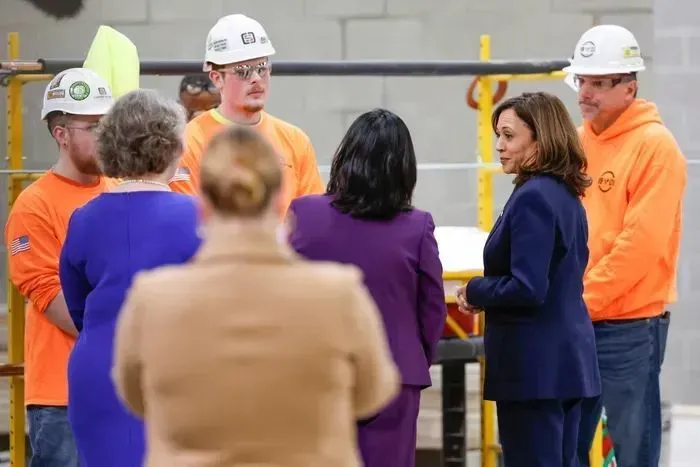
Harris’ housing plan focused mainly on the supply side and she pledged to address the housing shortage by adding 3 million housing units by the end of her first term. Her plan also includes a $25,000 tax credit for first-time home buyers and a tax credit for builders of affordable homes.
Talking to the world: I’ve also heard that some people think Donald Trump can keep her promises, but for the Democrats, some voters are wondering if Harriss can keep her promises? Is she strong enough? Can She keep her promise? How do you feel about that?
Rob Vona: I think Donald Trump is talking a lot about the economy during his four years in office. There was no inflation. We all know that inflation is caused by many factors in the global supply chain. But I think more attention needs to be paid to some of his economic policies, particularly tariffs. I think the tariffs would actually increase costs for American consumers, affecting almost everything they buy. So I understand that he’s trying to jog people’s memories, but sometimes those memories aren’t always accurate. People may feel that things have been good in the past, and they do have their advantages. We were not involved in the European war and did not support the Ukrainians, but it was clear that we had been there for a long time and that, in fact, it was Donald Trump who first proposed the withdrawal plan.
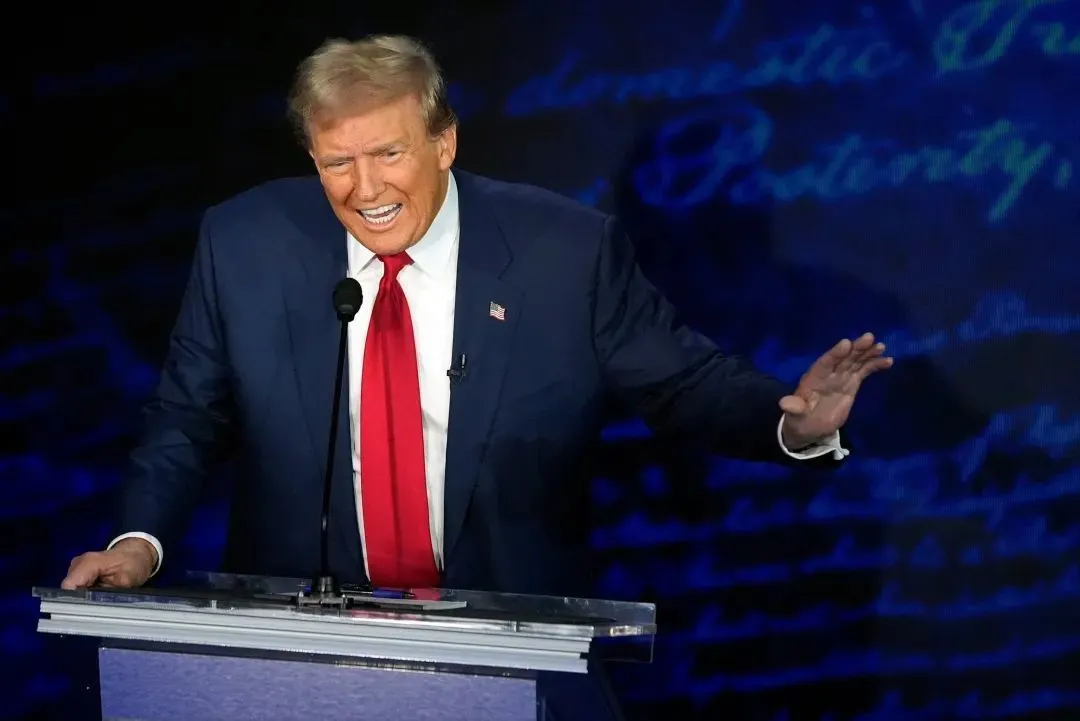
In 2021, when the Biden Administration decided to withdraw all U.S. troops from Afghanistan, Donald Trump repeatedly described the withdrawal as “The most embarrassing moment in American history.”.
He also wants to withdraw from Afghanistan, despite the complexity and criticism of the situation there. But I think it’s very complicated. When you really sit down and think about it, is there a part of both candidates’ scores that is exactly what people expect? In a way, people are like choosing food in a cafeteria. I liked some of the things that the other candidate said, and I liked some of the things that the other candidate said, and that resonated with me. Why Can’t I combine these different aspects into an ideal candidate? But that’s not the case. We have to make a choice.
Dialogue with the world: it’s a very interesting metaphor. Of all the things you mentioned, Harriss raised more than $1 billion, which is surprising. In China, the public generally believes that American politics, especially elections, are all about money. Money can be translated into influence. So, in your experience, does money really work?
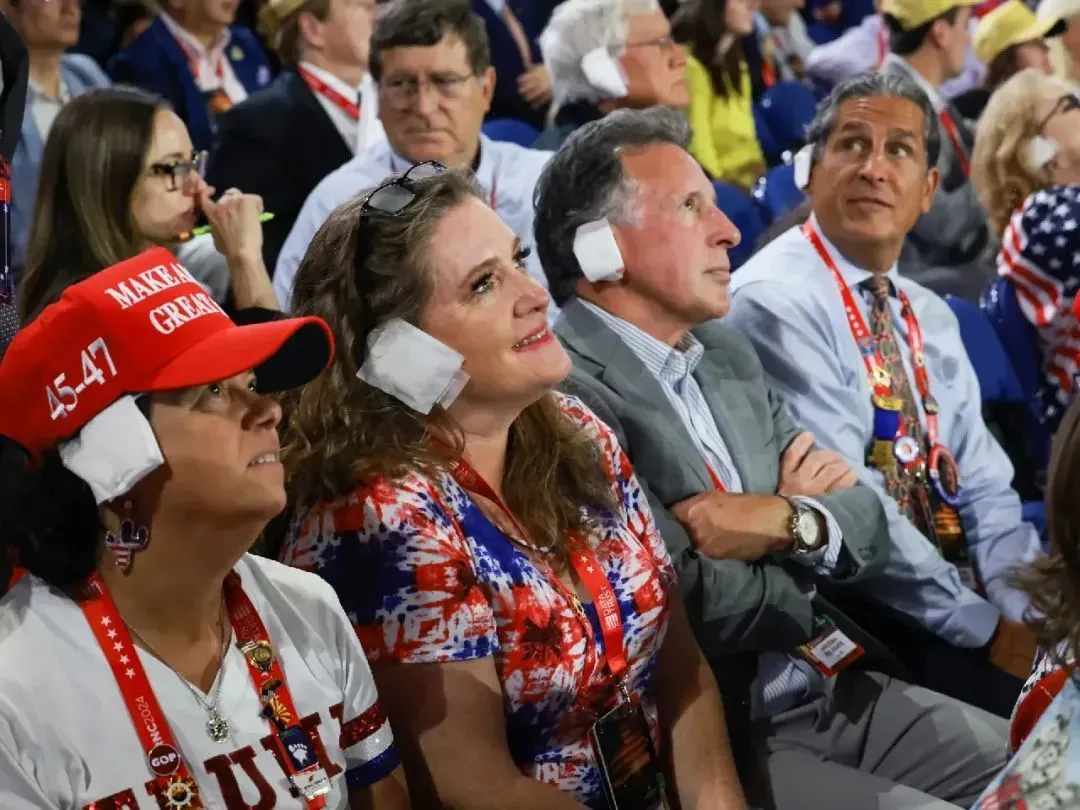
Attendees at the Republican convention have bandaged their ears in support of Donald Trump after he was shot in the ear. Photograph: Ghetti
Rob Vona: Money Isn’t the only deciding factor. Candidates must have enough money to get their message across, but they don’t necessarily need to have the most. Recall that in 2016, Mr. Pindell said, the Hillary Clinton cost far more than the Donald Trump and may have been better organized in Canvassing, but she still lost the election, because of the enthusiasm and commitment shown by Donald Trump’s supporters, these factors may be underestimated. So money is not everything. As I said, candidates need to have enough money, but not the most.
Dialogue with the world: when she raised a lot of money, did it mean that certain interest groups would have a significant impact on her policies? For example, Silicon Valley or some other company?
Rob Vona: I think donors do have an impact in all areas. In our campaign finance system, money is a burden that does sometimes buy political engagement. But I think you’ve also seen a surge in small donor participation. Our technology makes it easier for people to donate to candidates in small amounts, and they can keep repeating their donations until they hit the campaign finance ceiling. So I think there is some balance here as well.
Dialogue with the world: Well, I’ve heard of a model where large donors monitor each other to make contributions more transparent, which helps make policy more autonomous. Does that still work today?
Rob Vona: I think there are a lot of people who would like to see laws that make donations more accessible and transparent. Some people think you can donate any amount to any candidate or cause, but I just want to know where the money comes from. That might tell me more as a voter.
Dialogue with the world: OK, last question. I know you are running an exciting campaign and the time is very tight, and I know many of my friends are involved in canvassing. In your experience, how do you mobilize undecided voters? Do you have any special strategies?
Rob Vona I think it’s important to go door to door and talk to voters and knock on doors. I’m from New Hampshire, a state known for making house calls and making frequent contacts. For example, some voters say they haven’t decided yet. Well, I’ll go back in ten days and continue to communicate with them.
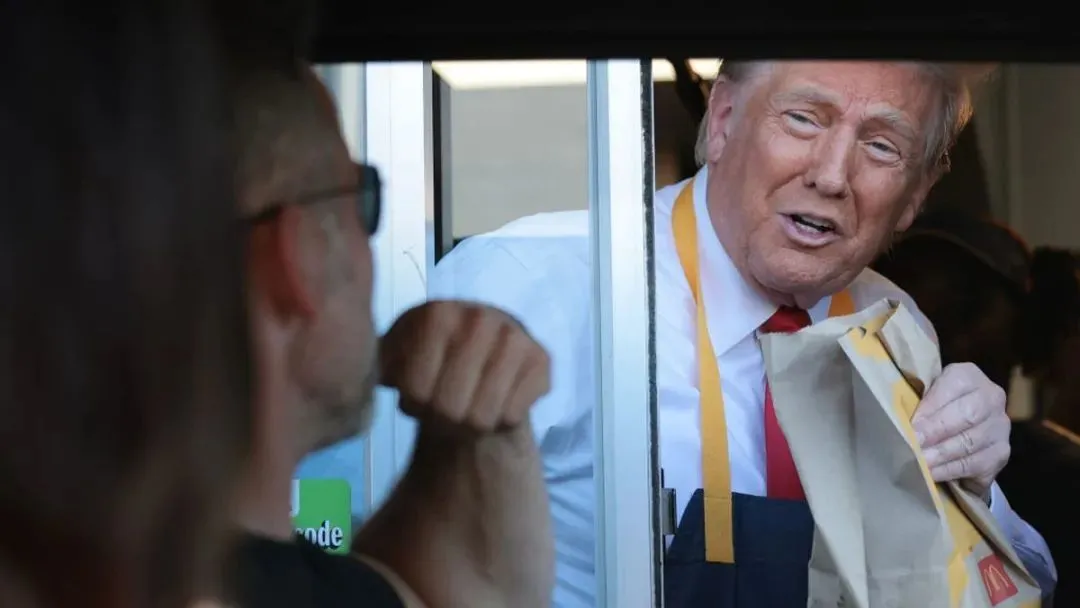
On October 20, Donald Trump briefly “Worked” at a mcdonald’s restaurant in Pennsylvania and talked to the public.
I believe that this is where the organization can play a role and have a positive impact on the candidates. If the candidate has the organizational skills to keep in touch with the voters and keep informed, the campaign could garner 1 or 2 percent support, and in today’s tense election environment, this can make a real difference. Therefore, interpersonal contact is very important.
Dialogue with the world: Good. But it does require a lot of patience. Do you have any new network strategy. Like, finding an influencer and trying to…
Rob Vona: I think it’s about asking people, giving them space to express themselves, trying to understand why they say that, and giving them space to do that, and ways to pander to their positions.
Talk to the world: Yes, that’s right. So the last question is, we’re also talking about elections eight years ago and four years ago. But in your experience and observations, has there been some kind of realignment or political change in this year’s election? I know, for example, that some Latinos support Donald Trump and some white-collar workers support Harriss. Do you think any changes indicate a new era is coming?
Rob Vona: Things Are Changing, new voters are coming in, new pressures and new experiences. At the moment, an important predictor of voting is education, with highly educated people generally inclined to support Democrats. That may change, however, depending on the experience, but it is a relatively reliable predictor at the moment. In addition, as noted, changes are taking place in certain population groups that traditionally support the Democratic Party, such as the voting patterns of Hispanic voters and young male african-n voters. So it’s really interesting to see how this all plays out.